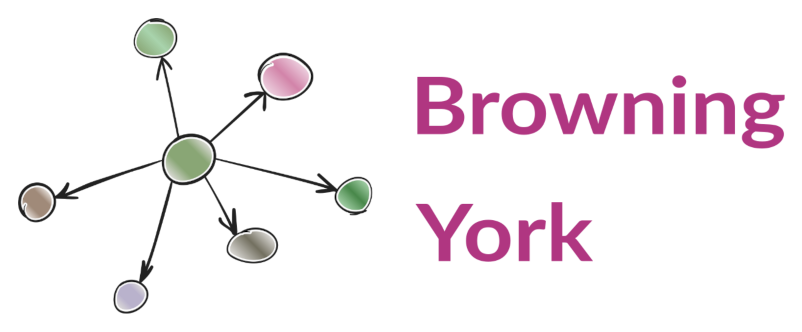In this month’s guest post, we learn from trainer and coach, Stephanie Smith, about the powerful, but often under-rated, communication skill of listening.
 One of my favourite workshop exercises uses a picture. It’s a complex image; one of those where the longer you look, the more you see. I show participants the picture for 3 seconds, remove it and ask each person in turn what they noticed.
One of my favourite workshop exercises uses a picture. It’s a complex image; one of those where the longer you look, the more you see. I show participants the picture for 3 seconds, remove it and ask each person in turn what they noticed.
“It was a dark forest with orange flowers growing up the trees and some columns”
“Trees, an arrow, columns, vines, flowers, an umbrella”
“It was eerie, a bit magical, slightly threatening”
Some people give an overall description while others list individual items. Some pick up on colours, others on the feelings it evokes.
Everyone is correct. This exercise isn’t about memory or accuracy. It illustrates how we pick up on different things even when we see exactly the same image at the same time as the person sitting next to us.
What’s enlightening and often a bit unsettling is realising that, without asking each person to describe what they noticed, most people would have assumed that everyone else saw the same things they did.
What drives the difference?
The way we make sense of images, words and actions is significantly shaped by our values. Our values determine what is most important to us, how we like to be treated and how we make decisions.
This is important to understand because, when something (a message, a person or an organisation for example) is aligned with our values, we are more likely to listen, connect and take positive action. In contrast, if we sense that our values are not represented or, worse, are criticised, we are more likely to feel dis-engaged.
What can I do about it?
As a child, we are taught how to speak and write and read but we’re not taught how to listen. Perhaps this is why most of us are pretty bad at it! How many of us think we’re listening when actually we’re just waiting for our turn to speak? And have you tried to have a conversation when the other person’s attention is elsewhere? Infuriating, isn’t it?
“Seek first to understand, then to be understood.” Stephen Covey; 7 Habits of Highly Effective People.
When someone is fully listening you will see it in their eye contact, body language, the questions they ask and how they respond to the answers. They won’t interrupt, offer solutions or opinions. They will pick up on cues such as emotion or pitch or energy and notice what is not said as much as what is.
When you listen, you will get information about their values and, just like the workshop participants looking at the same picture, you’ll gain insight in to what makes communication work for them.
Words can be incredibly powerful but good communication is about far more than a well-crafted slogan. Our reaction when we experience actions that are not aligned to the words we hear will depend largely on our relationship with that person or organisation. For instance, we might laugh it off when our best friend is running late again but when we’re told that our organisation values its employees and then acts in a way that we interpret as the opposite, we are less likely to be so forgiving.
Listening is not the same as agreeing, nor is it a commitment to changing something as a result. When we’re confronted with strong feelings, it can feel safer (and, let’s be honest, easier) to withdraw, ignore it and hope it will go away. But great listening gives space for emotion and looks beyond it to recognise which values are being threatened. When we feel heard, we are more likely to listen ourselves, increasing the likelihood that we’ll identify areas of common ground and build trust.
Not convinced? Try fully listening to your partner, child or best friend tonight. Set yourself a challenge of tuning in completely to what they’re telling you without any distractions. Give them your undivided attention. When they’ve finished, try reflecting what you’ve heard. For instance, “From what you said, it sounds like xxx is really important to you.” and see what happens.
You won’t be disappointed.
“People will forget what you said, people will forget what you did but people will never forget how you made them feel.” Maya Angelou
Stephanie is an experienced coach and trainer, working with both individuals and teams on personal impact, choice and change. Her clients are individuals who feel they don’t “fit the leadership mould” and who seek an enhanced level of self-awareness to enable them to achieve improved results both in and out of work.
Find out more:
www.stephaniesmithcoaching.co.uk
Twitter: @stephaniescoach
Instagram: @stephaniescoach
Facebook: @stephaniesmithcoaching
LinkedIn: stephaniesmithcoaching
